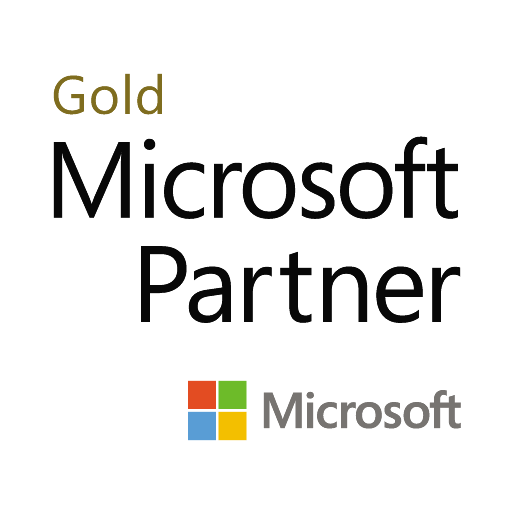Security Information and Event Management (SIEM)
Security Information and Event Management (SIEM) solutions are integral to modern cybersecurity operations, providing organizations with comprehensive capabilities for real-time monitoring, analysis, and response to security incidents. By aggregating and correlating data from various sources across the network, SIEM solutions enable organizations to detect and respond to threats more effectively, reducing response times and minimizing potential damage. Takumi offers expert guidance and support in the implementation and management of SIEM solutions, empowering organizations to strengthen their security posture, proactively identify and address security threats, and safeguard their digital assets. Leveraging Takumi's expertise in SIEM technologies, organizations can improve their security operations, mitigate risks, and ensure the integrity and resilience of their IT infrastructure.
Get SIEM support
SIEM - Define Objectives and Requirements
Data Gathering and Analysis
Takumi can gather and analyze data pertinent to your organization's current security posture. This may include logs from various systems, network traffic data, incident reports, and compliance documentation. By aggregating and analyzing this information, Takumi can provide valuable insights into existing security challenges, areas of vulnerability, and potential gaps in your organization's security framework.
Risk Assessment
Takumi can conduct a comprehensive risk assessment to identify and prioritize security risks faced by your organization. It can evaluate factors such as the sensitivity of data, potential threats, regulatory requirements, and industry best practices. Based on this assessment, Takumi can help prioritize objectives for the SIEM implementation, focusing on addressing the most critical security risks first.
Customization and Tailoring
Takumi can be customized to align with your organization's specific needs, goals, and compliance requirements. It can incorporate industry-specific regulations, internal policies, and security standards into the objectives and requirements definition process. This ensures that the SIEM solution is tailored to meet your organization's unique security challenges and operational requirements.
Benchmarking and Best Practices
Takumi can provide benchmarking data and insights into industry best practices for SIEM implementation. It can compare your organization's security posture against industry standards and peer benchmarks, highlighting areas where improvement is needed. By leveraging best practices, Takumi can help define objectives that are realistic, achievable, and in line with industry standards.
Stakeholder Collaboration
Takumi facilitates collaboration among key stakeholders involved in the SIEM implementation process. It provides a platform for stakeholders from IT, security, compliance, and executive leadership to collaborate on defining objectives and requirements. This ensures alignment across different departments and ensures that the SIEM solution meets the needs of all stakeholders.
Documentation and Reporting
Takumi can generate comprehensive documentation and reports outlining the objectives and requirements for the SIEM implementation. These documents serve as a reference point for all stakeholders involved in the project, providing clarity on project goals, timelines, and deliverables. Takumi can also track progress towards meeting objectives and generate status reports to keep stakeholders informed throughout the implementation process.
Customized Recommendations and Prioritization
Takumi prioritizes features and functionalities based on input from key stakeholders and conducts surveys or interviews to gather requirements. By considering factors such as industry sector, regulatory compliance, and growth projections, Takumi generates customized recommendations tailored to your organization's specific needs, ensuring that the selected SIEM solution offers the most relevant and beneficial features.
SIEM - Select a SIEM Solution
Research and evaluate various SIEM solutions available in the market based on their features, scalability, compatibility, ease of use, and cost. Choose a SIEM solution that aligns best with the defined objectives and requirements.
Get expert SIEM helpComprehensive Vendor Evaluation
Takumi conducts thorough research and analysis of SIEM vendors, considering factors such as features, scalability, integration capabilities, and pricing models. This ensures that your organization receives customized recommendations based on its unique needs and priorities.
Scalability and Integration Assessment
Takumi assesses the scalability and integration capabilities of SIEM solutions to ensure they can accommodate your organization's current and future needs. By evaluating factors such as data volume, compatibility with existing security infrastructure, and support for hybrid environments, Takumi helps identify solutions that can seamlessly integrate and scale as your organization evolves.
Risk Mitigation and Cost-Benefit Analysis
Takumi performs risk assessments to identify potential risks and challenges associated with each SIEM solution. It also conducts cost-benefit analyses to compare the total cost of ownership (TCO) and return on investment (ROI) of different solutions. This helps mitigate risks and ensures the selection of a reliable, cost-effective SIEM solution that aligns with your organization's budget and security goals.
SIEM - Infrastructure Assessment and Design Architecture
Takumi can help Assess your organization's existing IT infrastructure, including network architecture, systems, applications, and data sources. We can design the architecture for deploying the SIEM solution, considering factors such as data collection points, network segmentation, log aggregation, storage, and scalability.
Get SIEM Design helpComprehensive Data Collection and Analysis
Takumi gathers data from various sources within your organization's IT infrastructure, including network devices, servers, applications, and security tools. It analyzes this data to provide insights into the current state of your infrastructure, identifying potential vulnerabilities, bottlenecks, and areas of improvement.
Integration with Existing Systems
Takumi evaluates how the SIEM solution can integrate with your organization's existing systems and security tools. It ensures compatibility with firewalls, intrusion detection/prevention systems, antivirus solutions, and other security technologies. By seamlessly integrating the SIEM solution into your existing infrastructure, Takumi helps maximize operational efficiency and effectiveness.
Customized Architecture Design
Based on the findings of the infrastructure assessment, Takumi helps design a tailored architecture for deploying the SIEM solution. It considers factors such as data collection points, network segmentation, log aggregation, storage requirements, and scalability. By customizing the architecture to fit your organization's specific needs and goals, Takumi ensures the effective implementation and operation of the SIEM solution.
Scalability and Future-Proofing
akumi assesses the scalability of the SIEM architecture to accommodate your organization's current and future needs. It considers factors such as data volume, growth projections, and support for cloud or hybrid environments. By designing a scalable architecture that can adapt to changes in your organization's infrastructure, Takumi helps future-proof your SIEM implementation and ensures long-term success.
SIEM - Data Collection, Integration, and Normalization
Data Collection
Takumi automates the process of data collection, reducing the need for manual intervention and ensuring continuous monitoring of your infrastructure. It can schedule regular data collection intervals and retrieve logs from disparate sources efficiently. The injestion would come from various sources within your organization's IT infrastructure, including network devices, servers, endpoints, applications, and security tools.
Data Integration
Takumi helps to integrate the SIEM solution seamlessly with your organization's existing systems and security tools. It ensures compatibility with firewalls, intrusion detection/prevention systems, antivirus solutions, and other security technologies. By consolidating data from diverse sources, Takumi can help provide a unified view of security events and activities across your infrastructure.
Data Normalization
Takumi can help standardize the format of collected data, ensuring consistency and interoperability across different sources. We help convert logs from various systems and applications into a common format, making it easier to correlate events and perform analysis. The data can be enriched with metadata such as timestamps, IP addresses, user identities, and geolocation data, providing more comprehensive insights into security events and activities.
Data Quality Assurance
Takumi helps to validate and cleanse the collected data to ensure its accuracy, completeness, and reliability. It identifies and resolves inconsistencies, errors, and duplicate entries in the log data, maintaining data integrity and quality. We also help with data retention policies to manage the storage and retention of collected data.
SIEM - Correlation, Tuning, and Optimization
Takumi provides valuable resources and functionalities to support correlation, tuning, and optimization within your organization's SIEM (Security Information and Event Management) environment. Here's how Takumi can assist in each aspect:
Get SIEM helpCorrelation
Takumi can help provide a comprehensive set of predefined correlation rules that can be tailored to your organization's specific needs, facilitating the identification of patterns, trends, and relationships between security events. These predefined rules serve as a solid foundation for detecting potential threats and anomalies within your environment. Additionally, Takumi can help enable the creation of custom correlation rules within your SIEM based on unique requirements, ensuring that the SIEM system accurately identifies relevant security incidents. This customization capability allows your organization to address specific security concerns and adapt to evolving threats effectively.
Optimization
Takumi facilitates fine-tuning of correlation rules to optimize detection accuracy and reduce false positives. By allowing you to adjust rule parameters, thresholds, and filters based on feedback from security analysts and operational insights, Takumi ensures that the SIEM system effectively identifies genuine security incidents while minimizing noise. This fine-tuning process helps improve the overall effectiveness and efficiency of your security operations, enabling your organization to focus resources on addressing critical security threats. With Takumi's support for fine-tuning correlation rules, your organization can achieve a more precise and responsive security monitoring capability.
Tuning
Takumi incorporates advanced behavioral analysis techniques to enhance threat detection capabilities. By analyzing historical data to establish baseline behavior, Takumi can identify deviations from normal patterns that may indicate suspicious activity. This proactive approach to threat detection enables your organization to detect and respond to security incidents more effectively, reducing the risk of data breaches or unauthorized access. With Takumi's behavioral analysis capabilities, your organization can stay ahead of emerging threats and maintain a strong security posture.
SIEM - Incident Response Procedures, Training, and Testing
Incident Response Procedures
Takumi staff can collaborate with your organization to develop and refine incident response procedures tailored to your specific needs and requirements. Drawing on their knowledge of industry best practices and regulatory standards, they can assist in establishing standardized procedures for identifying, assessing, containing, mitigating, and recovering from security incidents. By leveraging their expertise, Takumi staff ensure that your incident response procedures are comprehensive, effective, and aligned with your organization's objectives and priorities.
Training
Takumi staff can provide comprehensive training programs for your organization's security teams, IT staff, and other relevant personnel. These training programs cover a wide range of topics, including the use of the SIEM system, incident detection and response techniques, security best practices, and compliance requirements. Through hands-on workshops, simulations, and interactive sessions, Takumi staff equip your personnel with the knowledge, skills, and tools they need to effectively detect, respond to, and mitigate security threats. By investing in ongoing training and skill development, Takumi staff help strengthen your organization's cybersecurity posture and readiness to handle security incidents.
Testing
Takumi staff can conduct thorough testing and validation exercises to evaluate the effectiveness of your organization's incident response procedures and SIEM system. This includes simulating various security incidents, such as malware infections, data breaches, and insider threats, to assess your organization's ability to detect, respond to, and recover from such incidents. Takumi staff analyze the results of these tests to identify areas for improvement in your incident response procedures, SIEM configuration, and overall security posture. By conducting regular testing and validation exercises, Takumi staff help ensure that your organization is well-prepared to handle security incidents effectively and minimize their impact on your operations.
Overall, Takumi staff members play a critical role in assisting your organization in incident response procedures, training, and testing by providing expert guidance, training programs, and validation exercises tailored to your specific needs. By leveraging their expertise and experience, Takumi staff help strengthen your organization's cybersecurity defenses and readiness to respond to security incidents.
Our partners
Google Cloud, Amazon AWS, Microsoft Azure, and Kubernetes trust us to implement their technologies in for our clients.



